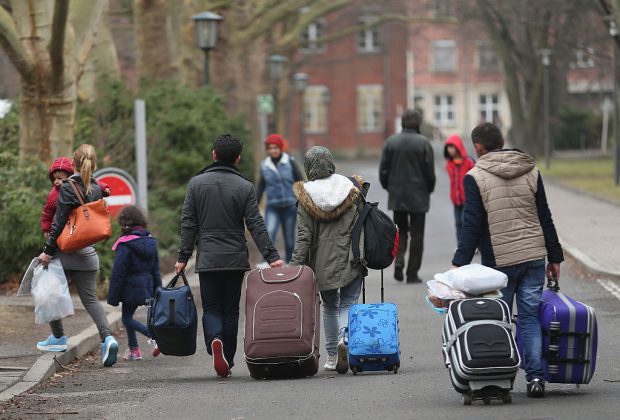In 1942, a man called Manfred Alexander turned up, unannounced, on my grandfather’s doorstep in Berlin. My grandfather knew him only slightly. He hadn’t seen him for several years. Like countless Jews, Manfred had been herded onto an eastbound train the year before, bound for God knows where. He’d ended up in a Concentration Camp in Minsk, run by the Ukrainian SS. There, after a terrible winter, a German guard whom he hardly knew hid him beneath the coal in the tender of a steam train which was carrying wounded German soldiers back to Berlin. Back in Berlin, cold and hungry, Manfred headed straight for my grandfather’s apartment on Grolmanstrasse. It was opposite the police station but it was the only address he knew.
My German grandfather was no saint. He was the black sheep of the family. He’d gone to prison for insurance fraud and his Junker family had disowned him. His wife had divorced him. She’d taken their children to Dresden. People told her she would be safer there. The fact that he’d been abandoned made my grandfather’s task a little easier. At least it was only his own neck he was risking. He took Manfred in and clothed and fed him, and found a man who, for a price, would get him out of the Reich, and into Switzerland. After a month, Manfred set off for Switzerland. They never met again.
What does this story have to do with Germany’s current refugee crisis? Why, everything, of course. Everyone in Germany knows a story a bit like this one. Sometimes it’s a tale of how someone helped, and paid a dreadful price. More often it’s a tale of how someone didn’t help, and paid a different sort of price, eventually. The point is, Germany remains a prisoner of its past, scarred by the knowledge that the land of Goethe and Beethoven murdered six million Jews, while most people stood aside and did nothing.
Naturally, these two situations have virtually nothing in common, but in Germany that hardly matters – it’s the legacy that counts. Mindful of this awful legacy, you can see why the Bundesrepublik might feel compelled to react rather differently to the current immigration crisis than a secure and settled state like Britain. Images of German troops confronting bedraggled brown people across a barbed wire fence will always look uniquely awful, whatever the legalistic niceties. Angela Merkel’s decision to let in a million immigrants was, in some respects, merely crisis management. A lot of those huddled masses would have ended up there anyway, one way or another, regardless of whatever Merkel tried to do to stop them.
When it comes to making hard choices, Brits have a long and successful history to draw on, a secure democracy whose roots stretch back centuries. This democratic heritage gives Britain an inherent authority, an authority the Bundesrepublik lacks. Since its foundation in 1949, the Bundesrepublik has been a model state (let’s be honest – could we really wish for better neighbours?) but in historical terms, it remains a castle built on sand. Still less than seventy years old, it was preceded by seventy years of volatility and chaos. My father was born into the Third Reich, my grandfather in the Second Reich, my great-grandfather the year after Germany became a nation. Germany’s borders have changed several times since then, redrawn by successive victors. Large numbers of native Germans are fairly recent refugees themselves, displaced from Germanic lands conquered by Stalin.
When the Bundesrepublik was founded, in the shadow of the Third Reich, the right to asylum was written into the constitution, granted to anyone fleeing political persecution. When Germany was a bombed-out ruin, to give this guarantee was fairly easy. Now Germany is Europe’s powerhouse (with a social security system to match) it’s a lot more problematic. Which of Merkel’s millions are asylum seekers? Which are economic migrants? What constitutes political persecution? Could you work out who was who? The problem for Germany, and Europe, is that while the German state feels a duty to its past, future generations may not feel the same connection.
Manfred made it to Switzerland. After the war, he went to America. I never met my German grandfather (he died when I was a child) but I did meet Manfred, eventually. Fifteen years ago I finally tracked him down to a walk-up apartment in New York. We became friends, and as a result of several articles I wrote about him, and his adventures, my grandfather was posthumously declared ‘Most Righteous Among the Nations’ by the State of Israel. Manfred and I went to the Israeli Consulate in New York, to receive the medal – the same medal they gave to Oskar Schindler. That was the last time I saw him. He died a few months later. Back in Berlin, I went to the address on Grolmanstrasse that Manfred gave me. My grandfather’s apartment was no longer there. It had been destroyed in the Battle of Berlin. There’s a children’s playground where it used to stand. The police station is still there.






Comments